Countdown to TLOU #5 (Queer Girls)
When it comes to the fundamentals of human relationships Ellie and Riley are still very much little girls. That makes me so, so glad.
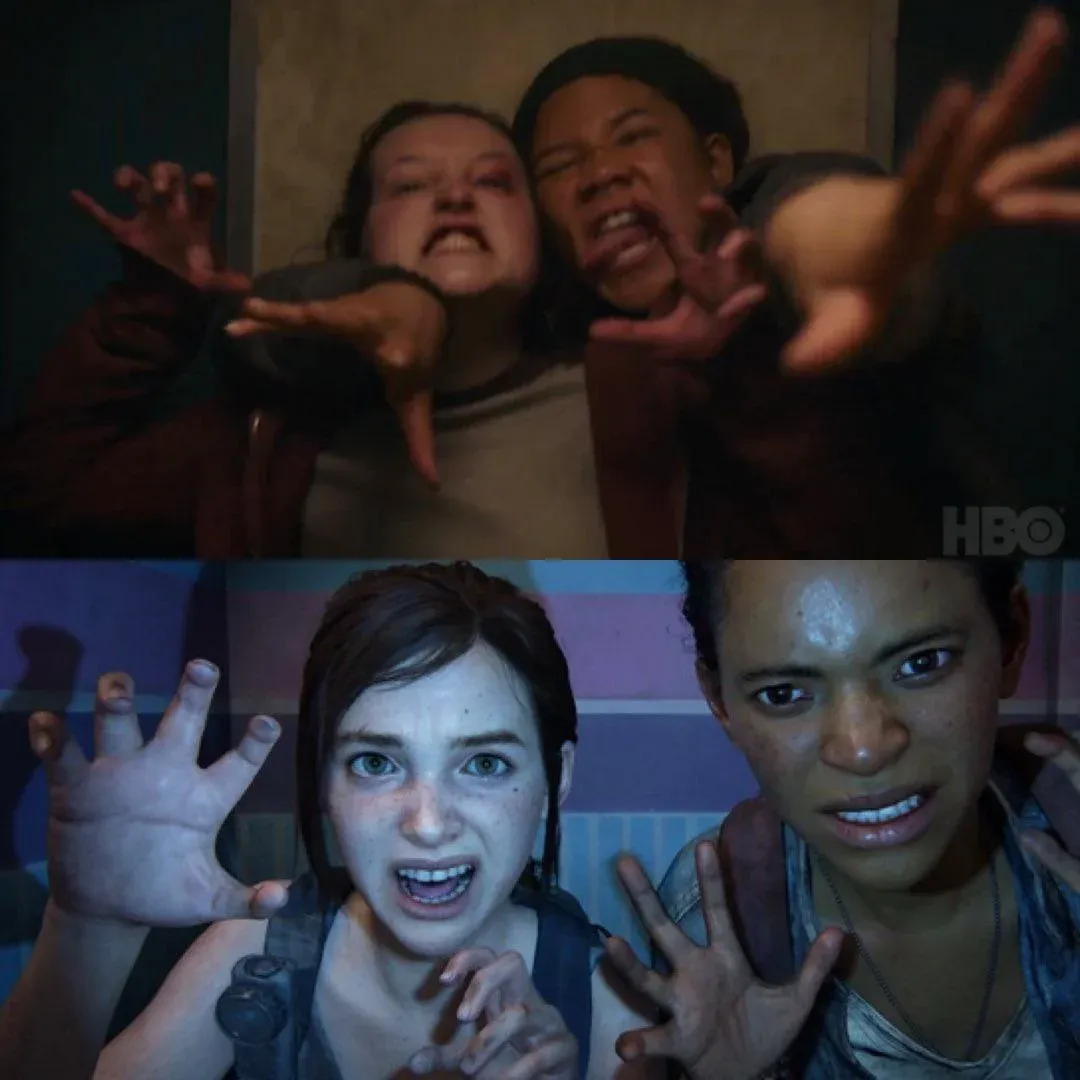
[NOTE: I actually did write most of this essay on 1/5, but my sleep has been off and I was exhausted yesterday, so I had to stop before finishing and sending it out last night. Anyway, Countdown to TLOU #6 will also be sent later today, as I really want to catch up!]
Quick update to newsletter #4: I WAS ABLE TO SUBMIT MY APPLICATION FOR THE CONSTELLATIONS X CA FELLOWSHIP! I got a lovely email response giving me an extended deadline until the end of the day today to submit using the online form again--whatever problem it was having was fixed. SO relieved. At least now I know I'll be considered, and that if I don't get the fellowship it's...on my own lack of merit. (*gulp*)
Anyway, I'm toward the end of "Left Behind" right now, so I wanted to shout out the sweetness that is Ellie and Riley and why stories like theirs are so important.
Welcome to the corner of Teresa & Queerness --
--Beware SPOILERS for "Left Behind", The Last of Us' DLC and TLOU 2--
I'm what you'd call a "late bloomer" (even though I hate that term. People aren't plants, and timelines for life milestones are arbitrary human constructs that are also hot garbage). There are so many things in my life that I've done later than a lot of my peers.
I learned how to ride a bike when I was 12. I learned how to swim when I was 14 (oh hey! I beat Ellie!). I learned how to roller skate...a couple of months ago.
I went on my first date when I was 18. I had my first kiss when I was 22. I started sexually engaging with other people's junk when I was around 26-27. I had intercourse for the first time when I was 32 with the person who was my first long-term relationship. [**you'll notice I didn't say I "lost my virginity." That's another garbage human construct that, if you look at it too closely, it starts to fall apart.**]
I came out as bisexual when I was 37--I'd been dating a woman for four years, but up until that glorious moment when I realized I was queer (It was a scene in Ghostbusters: Answer the Call featuring Chris Hemsworth and Kate McKinnon. As I looked back and forth between them, I knew I wanted to be the cold cuts between those two slices of white bread), I'd convinced myself that I was "making an exception."
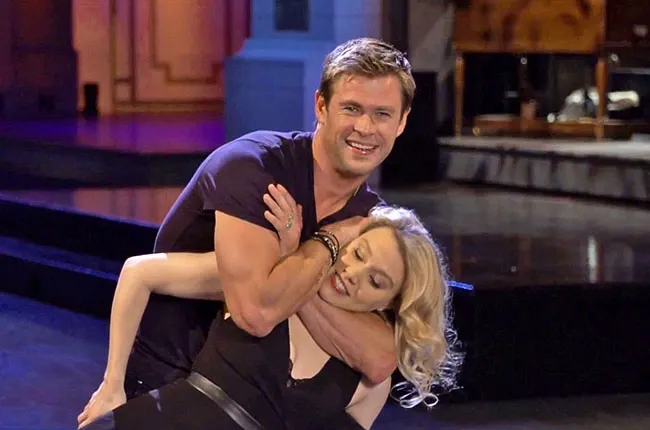
Never mind that I'd made out with a female roommate of mine in New York a couple of times. Or flirted with a friend's female co-worker when I visited him at work. Or shared a kink-laced correspondence with female friend in another state that we would've carried on in person were it not for logistics or finances.
I was STRAIGHT, you see. I was an ally. [I'm so much of an ally that I ended up marrying a woman to show my support!] Sigh. Silly Teresa.
Oh, and then after being a lifelong Catholic, I became Jewish at 39. After my million-and-one coping mechanisms were pushed to their limit, I got an ADHD diagnosis at 41. And then finally, at 42, I got a lit manager and got to a point where I've actively started a career in television.
While it's pretty great to finally be something resembling a fully-realized self in my early 40s, there are some things that I wish I would've gotten to a lot earlier.
Like my queerness, for example.
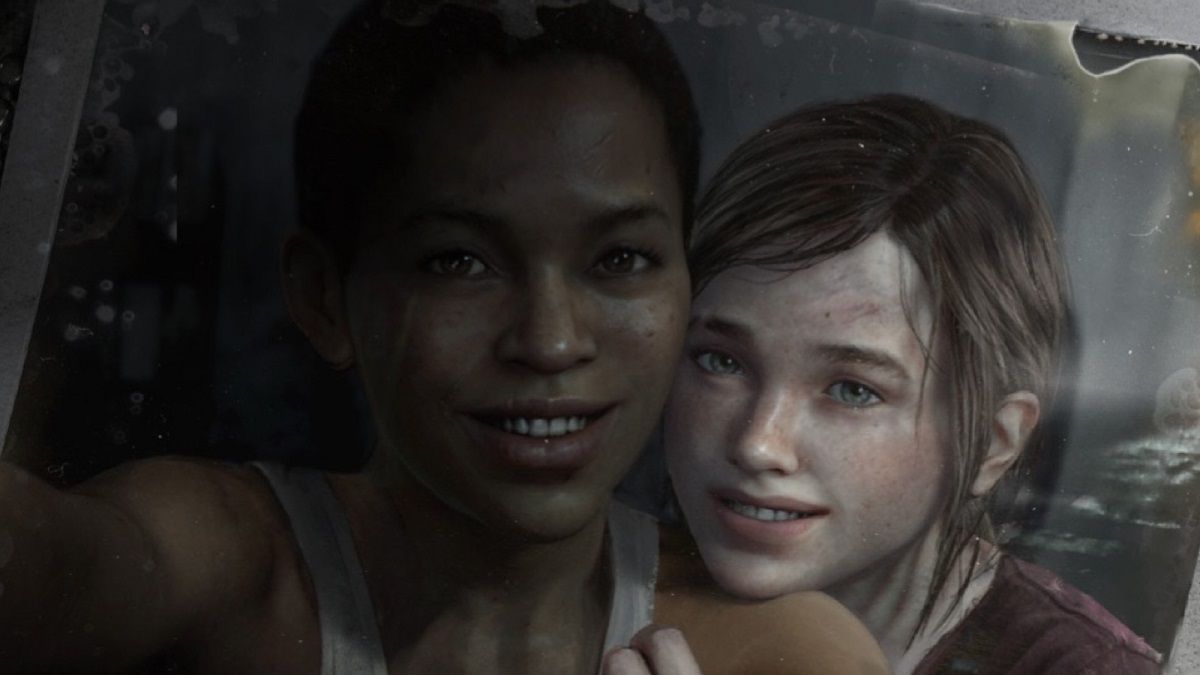
Being bisexual is hard--because kids, when they're given them at all, tend to receive very binary messages about sexuality. You're either gay, or straight. Or you're gay, or a lesbian. You're only allowed to like ONE gender, so choose wisely and act accordingly. No one ever acknowledges there's a third thing you can be. (Hell, there are several things you can be, but we're talking about when I was a kid in the 90s, and vocabularies were limited)
Basically, whoever people see you're interested in first, that forms the label for you in their head, and they call it a day.
So, any time I'd want to be around a girl inexplicably when I was a kid (ie: we weren't really friends, but I'd strike up conversations just to stare at her face for some reason), I'd chalk it up to me being friendly, or her being really nice, or "straight boys don't ever find other boys attractive, but all girls think some girls are pretty, right?"
Since "lesbian" wasn't accurate, "straight" seemed to be only alternative. I knew that the "B" in LGBT stood for something, but no one really talked about it much. (Neither did the "T," for that matter. Now, I'm a bisexual woman married to a trans woman, so those are basically my favorite letters!)
So, I didn't even know bisexuality was an option that could apply to anyone, let alone me, and no one ever told me what it felt like to like girls, or that it could feel different than the way you feel when you like a boy.
Because I knew it when I liked boys. My youth was riddled with some pretty hard-core crushes on (and fantasies about) boys, and there was a whole societal playbook about what that looks and feels like. So, what information I didn't get from my family (which was most of it), I could get from friends, books, movies, TV, music. "Girls liking boys" has a million templates to choose from.
And I assumed (wrongly, in my experience) that attraction was attraction, and so if I were really attracted to girls, I'd know, because I'd feel the same way I feel when I see a boy I like.
People of the jury, I did not. And it did feel different. Still does. Different butterflies, different warm-fuzzies, different impulses--same desire.
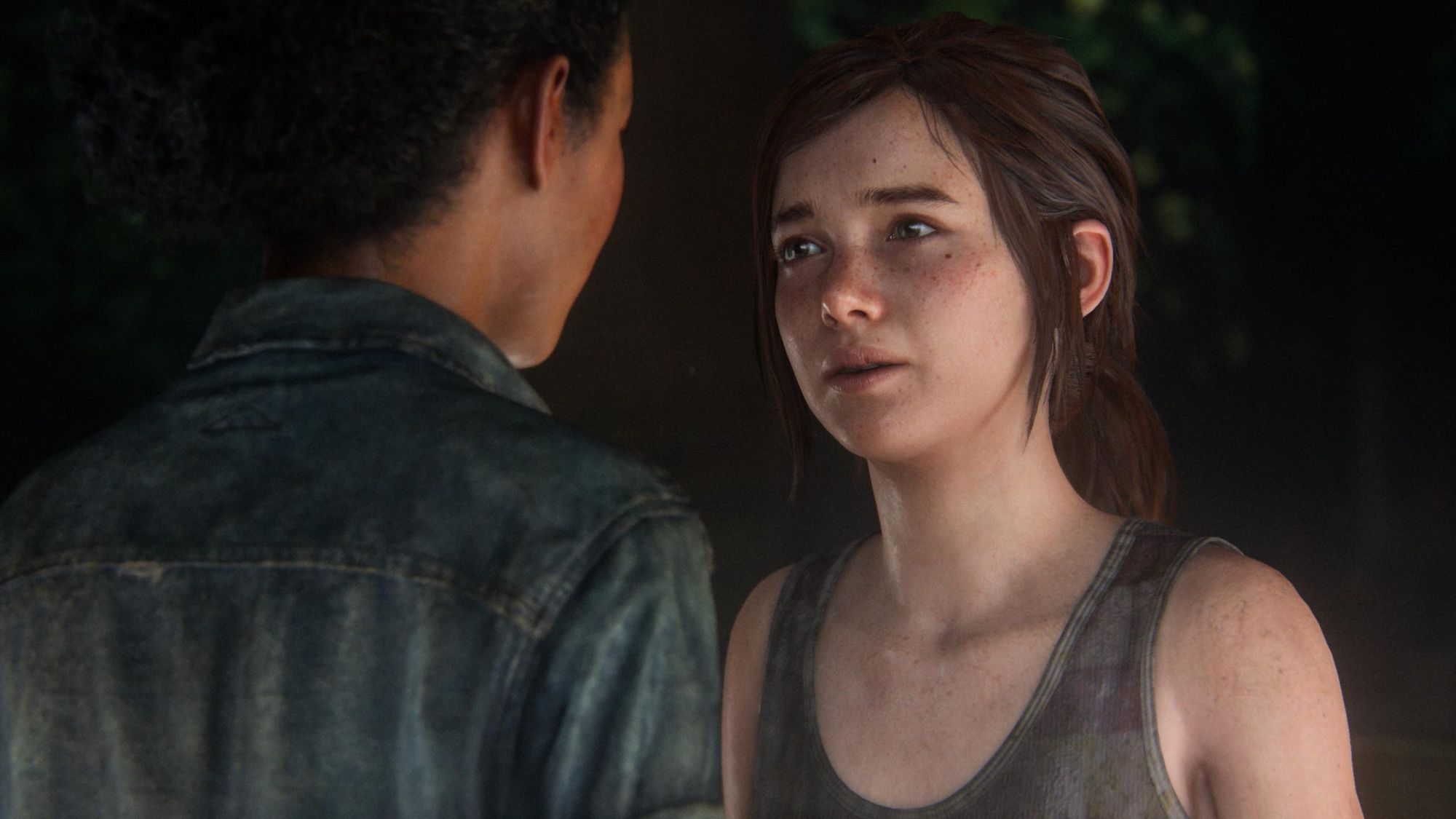
All of that history came flooding back as I started replaying "Left Behind," the DLC (downloadable content - in this case, a new, extra, shorter game) on The Last of Us. Having played it before, I went into it knowing that Riley is more than just Ellie's "best friend." She's her First Love.
And the thing is, Riley loves her, too. She loves Ellie so much that, despite having run off across town to join the Fireflies (a militia group fighting against the oppressive military, and trying to work toward a cure for the cordyceps virus), she worked her way back to the military school where she used to live with Ellie to bring her water guns she wanted and share a magical day with her in an abandoned shopping mall before leaving the city with the Fireflies. Riley loves Ellie so much that when Ellie eventually begs her to stay in Boston, Riley rips off her Firefly pendant and decides to stay.
And they kiss. And it's the sweetest thing. Riley's eyes pop open and there's this wonderful, happily surprised grin on her face, and when Ellie asks her what they're "gonna do now," Riley says, "We'll figure it out."
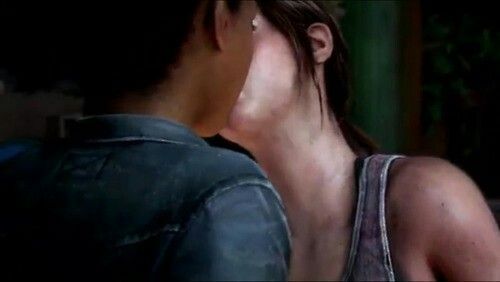
Watching their feelings for each other unfold is so sweet and wholesome and true--which is pretty remarkable when you consider the hellscape they were born into. These girls have no problem killing to survive, throwing themselves into danger, and being forced to grow up too soon in so many ways, but when it comes to the fundamentals of human relationships they are still very much little girls.
That makes me so, so glad.
We need more stories featuring young, queer characters. Specifically young, queer girls and enbies. Often when there's a queer kid in content for young people, it tends to be a gay boy. Queer girls and non-binary kids have far less material to identify with and gain insight from.
I don't mean trauma-infused content, or content where there's ONE queer kid and there's a Very Special Episode about how they're gay. Or even content where there's a queer main character or lead and every storyline is somehow About Them Being Queer. I'm talking about queer kids just existing and living their lives the way straight kids in stories are allowed to.
And I'm being very specific about citing a need for queer content featuring young queer characters. What I see happen a lot is that the queer representation in children's programming tends to be among the parents in the story. You'll see a child with two moms or two dads.
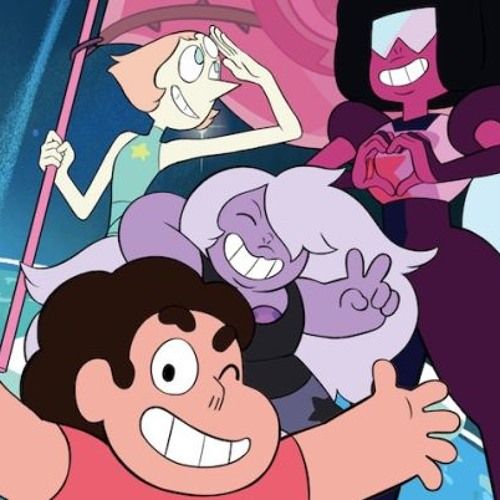
I love the show Steven Universe, which has a Y-7 rating, so it's geared to young children, but it's so profound and well-written that adults love it, too. And it is queer-tastic. The Crystal Gems, as a species, are all female or non-binary, so when they have romantic relationships, they're queer ones.
And Steven's mother is the famed Rose Quartz--the leader of the Gem Rebellion and the love of Pearl's life--who had Steven after falling for a human man. So, yay bisexual representation! (We'll leave talk about the quality of that representation--since she's a duplicitous character with a history of hurting everyone in her life hi bi stereotypes--for another day.)
Great, meaningful representation in a show geared toward children, but they're all adults. When young Steven falls in love, it's with a girl, and while I love Steven and Connie, this is yet another example of a kid who has queer adults in their life, but isn't queer themselves. (Though I suppose a case can be made for Steven being some kind of gender non-conforming, as he's very comfortable with his feminine side.)
Queer kids exist, and yet queerness always seems to be adultified, as if people have to be "a certain age" before they learn about queerness as an option. As if we don't shove heteronormativity down children's throats the second they can sit upright next to a baby of the opposite gender.
When we do see young queer characters, they are often way more "adult" than actual queer kids might be. Then again, most shows and films with tween/teen protagonists tend to adultify them in not-so-great ways, since it's usually adults playing younger and they can get away with more, which has a problematic impact on real-life young people. That's an essay for another day.
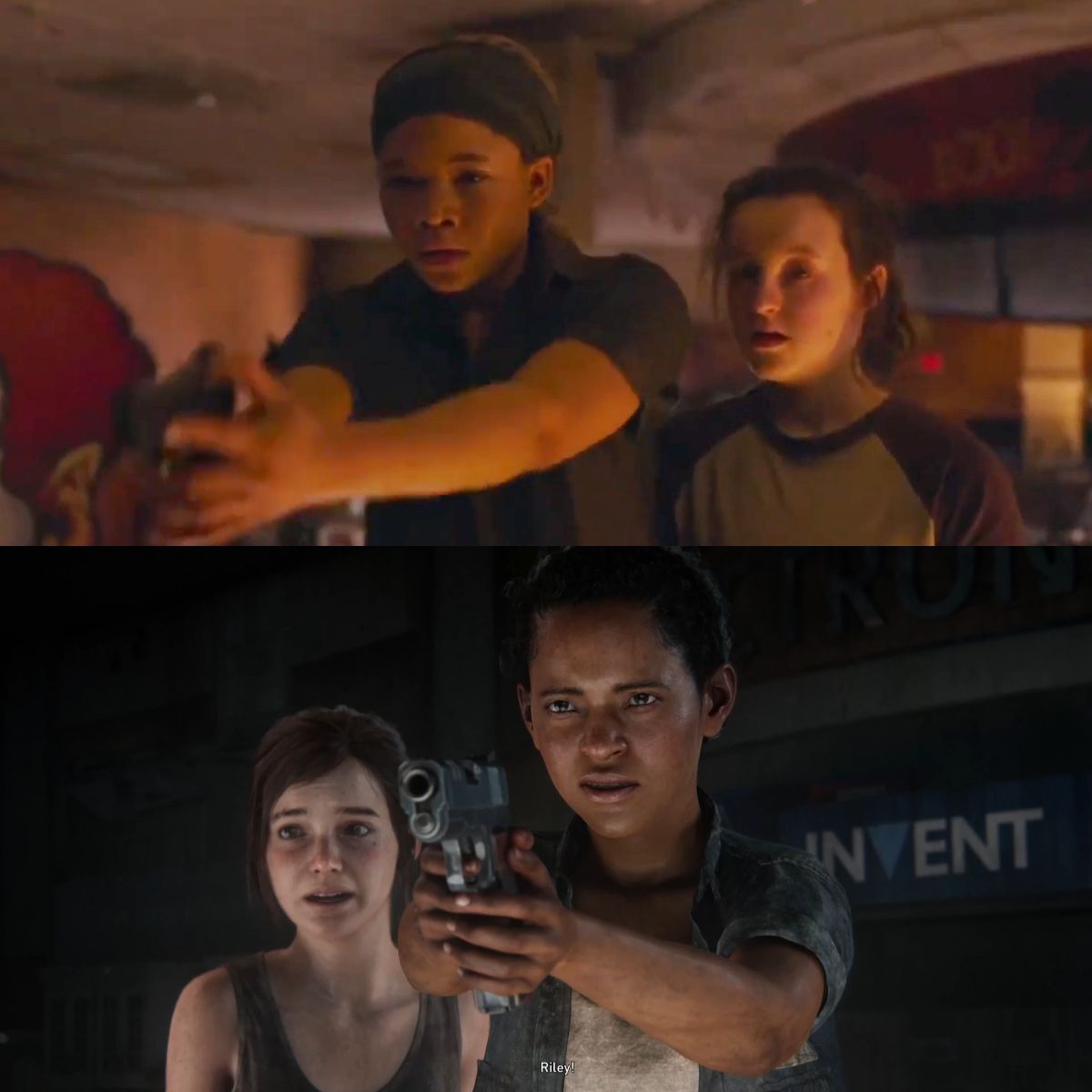
The point is, queer kids need stories to help them navigate the world just like straight kids do. They deserve to see themselves in an age-appropriate way that presents their feelings and early crushes and loves as natural and sweet and worthwhile.
Obviously, neither "Left Behind" nor the upcoming The Last of Us HBO show are for very young audiences. But I can see the presentation of Ellie and Riley's relationship being very meaningful for an older teenager. The world of TLOU is one fraught with danger and death that no child should have to experience. Yet, in the midst of all that, we have a deep, sweet, beautiful relationship between two girls. Their relationship is the least complicated thing in the story. Their world has light because their love is in it.
Yes, we can talk about how it ends, and about the "Bury Your Gays" trope. But I'd argue that, in a setting where everyone is dying, that doesn't really apply. Also, giving this trope a name was originally intended to highlight queer characters dying either to further the storylines of straight characters, or being killed off more often than straight characters. It bothers me when this trope is discussed in the context one member of a queer couple dying--as if the surviving member of the couple no longer counts as queer when not in a relationship. (Yet another essay for another day!)
The bottom line for me is: Ellie is a teenage lesbian. We got to see her first love, and we get to see her love again in TLOU 2 (I'll definitely be writing about Dina another time - Jewish, bisexual female characters FTW!). Queer girls have a nuanced, complicated character to enjoy whose adultification has nothing to do with her sexuality, but with the world she grew up in. Who, despite regularly needing to inflict it, remains horrified by violence. Who, despite the protective shell she's developed, desperately just wants the adults in her life to care for and protect her, because she shouldn't have to do it herself. When we see her with Riley, (or with Dina in the second game), or even as she plays video games in her head, collects comics, or expresses her passions for space, animals and dinosaurs, she's still very much a girl. A regular kid who prioritizes kid things. And happens to be attracted to girls.
I wish I'd been taught better as a kid. I wish I had the opportunity to see girls have crushes on girls and boys. I wish there would've been more female characters I related to whose experiences could teach me what my feelings meant and how to navigate them.
Had I had more mainstream stories to guide me, I might not have had to wait three decades to figure something out about myself that was as intrinsic as my gender or my Puerto Rican DNA. I might have gotten to have an Ellie or a Riley when I was a kid.
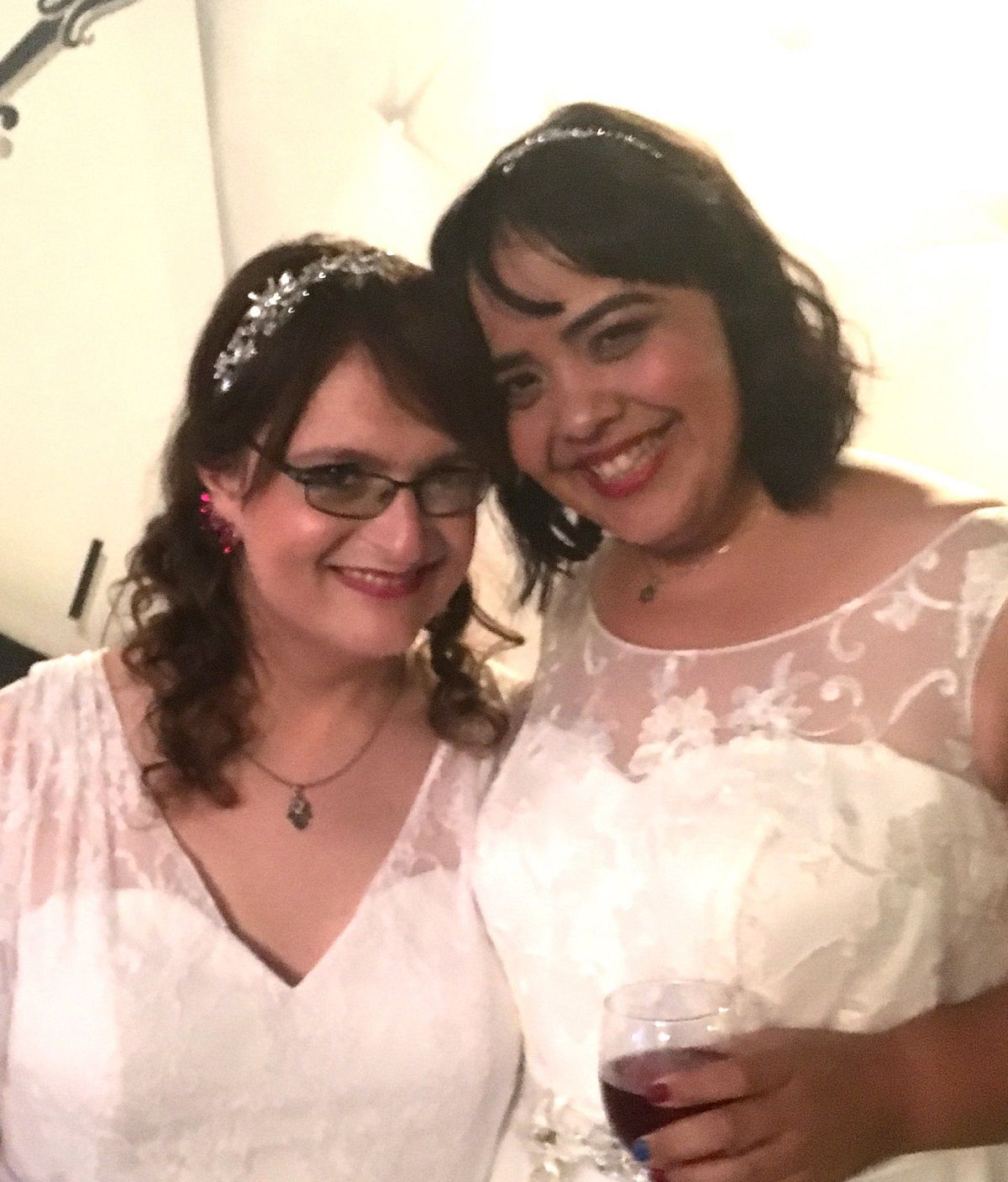
Thankfully, as we see in the story of The Last of Us, no matter how bad things get or how dark things seem, if you do your best to survive, life always gives us opportunities to find the light.

